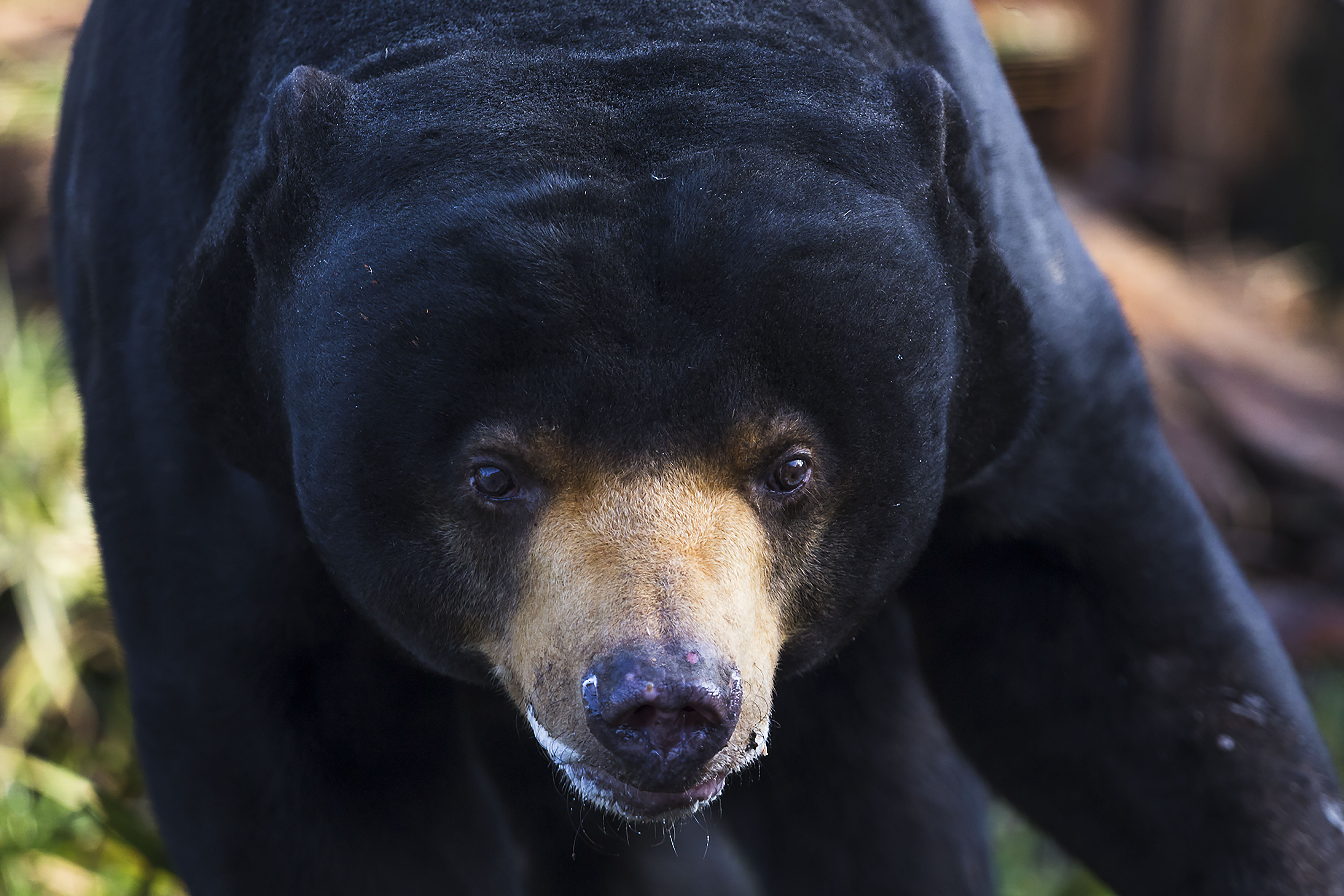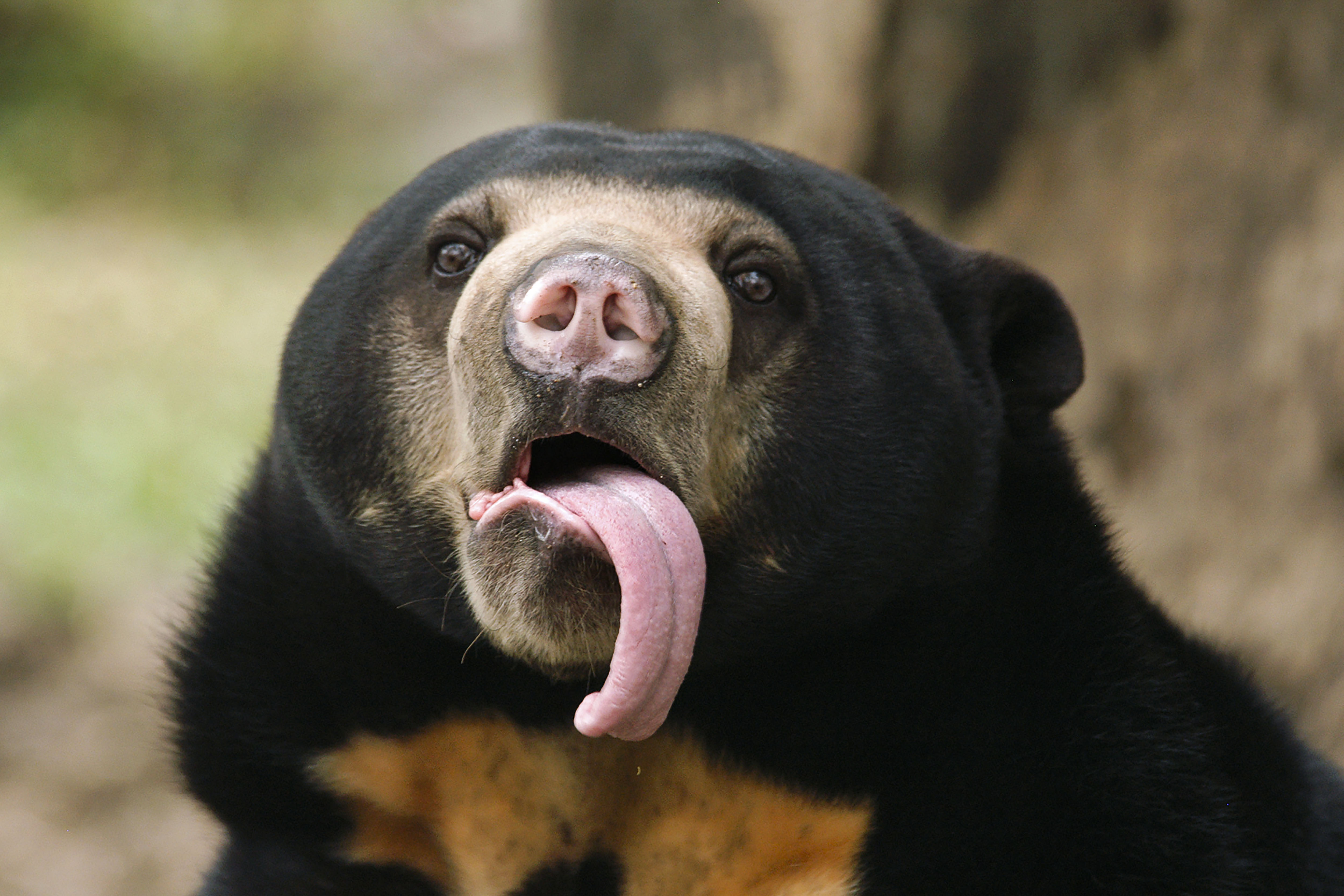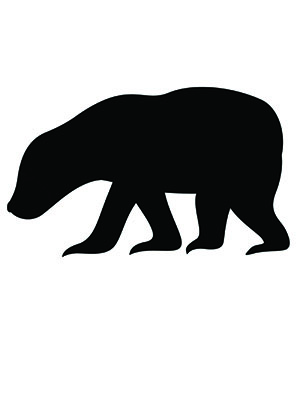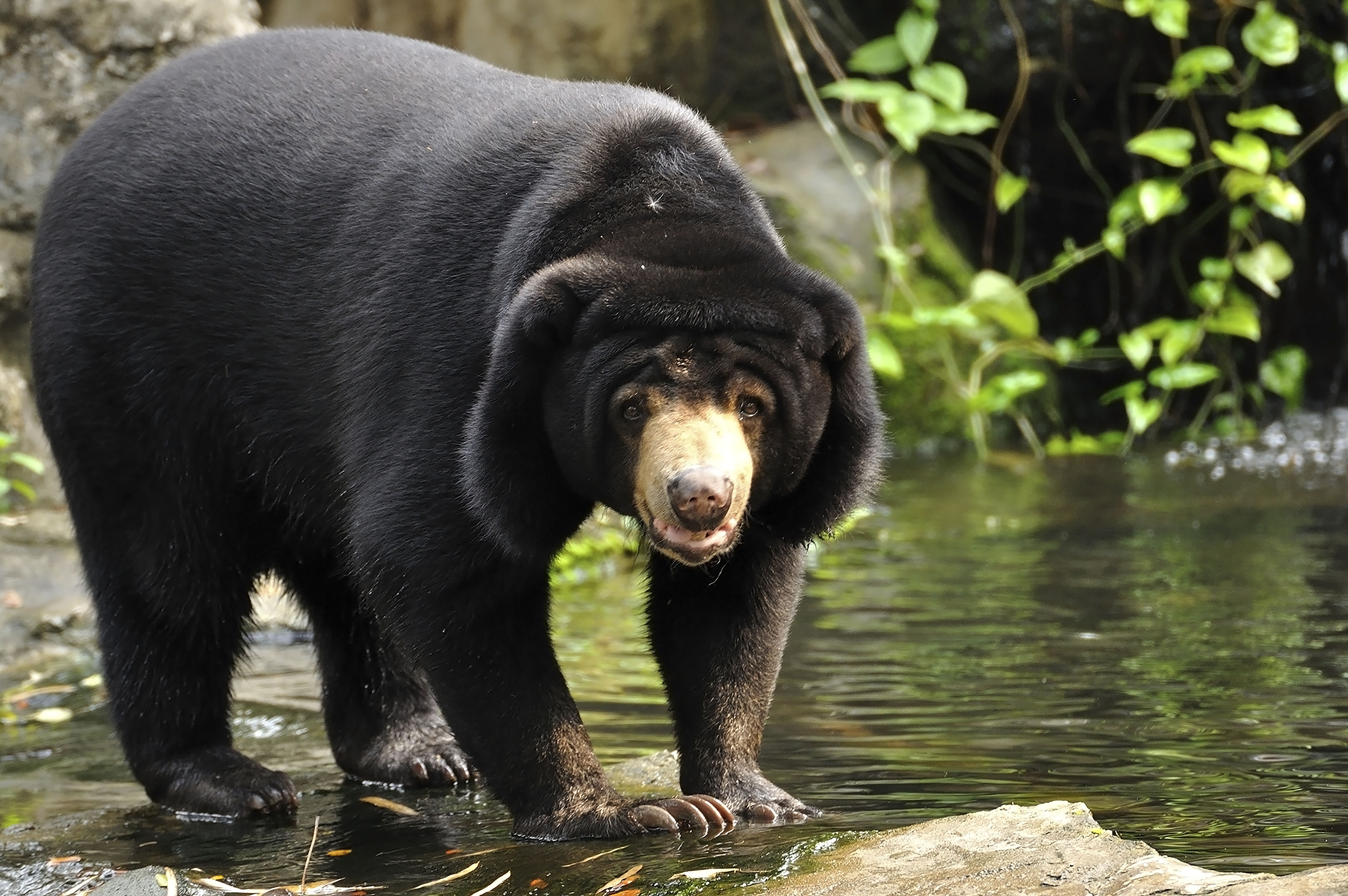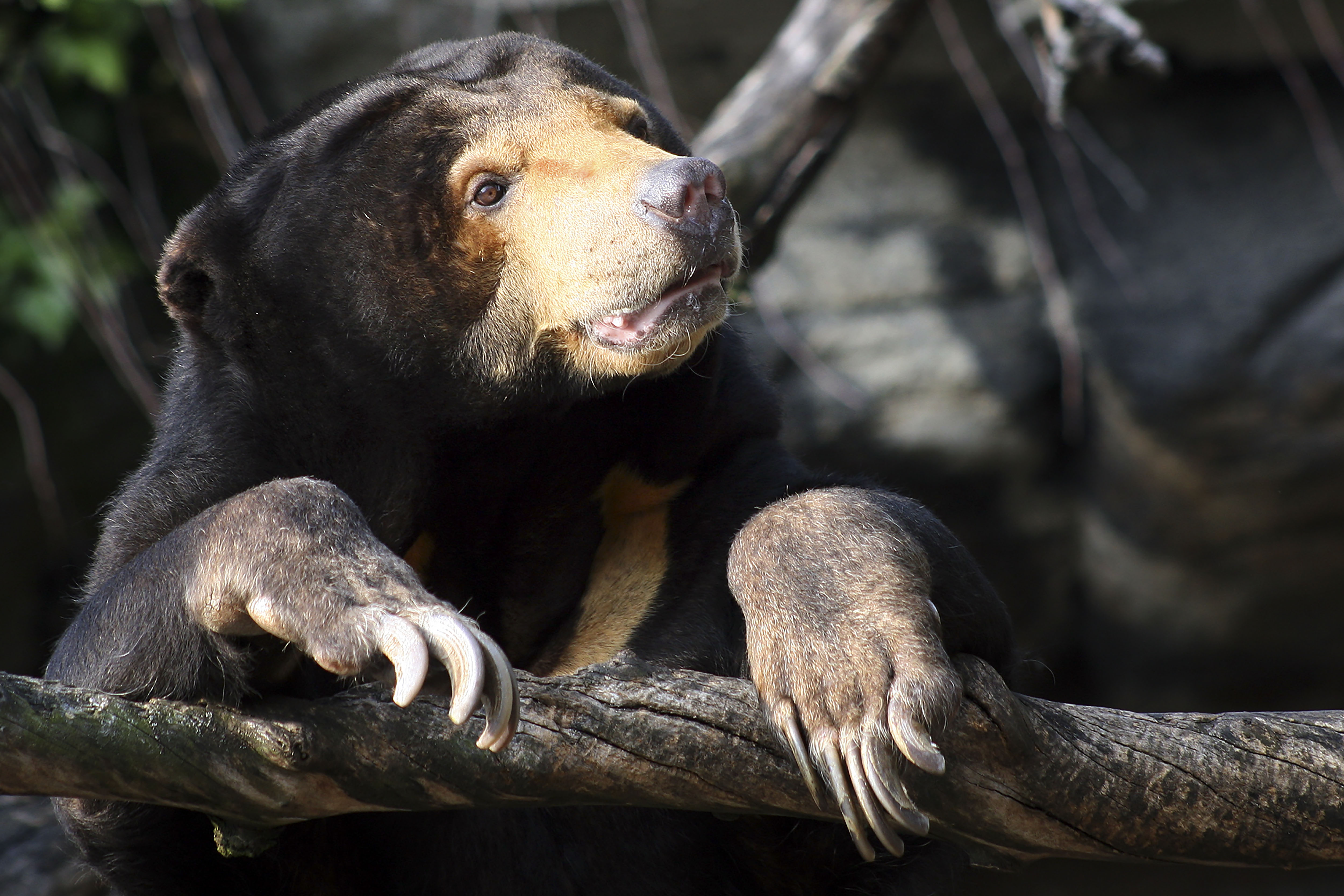Malayan Sun Bear
(Helarctos malayanus)
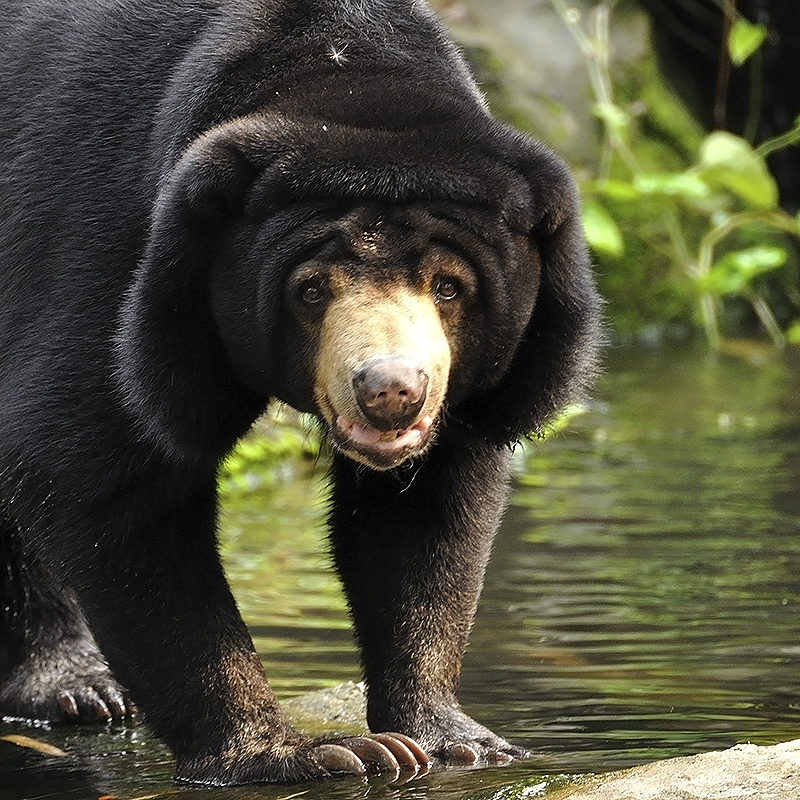
Sumatran Island Lowland and Montane Forests
STATISTICS
Height up to
1.5 m
Weight up to
65 kgs
Lifespan
UNKNOWN
Digging - Climbing - Sense of Smell
At home in the tropical forest habitat of Sumatra, the Malayan Sun Bear is both the smallest and rarest of the world’s eight bear species. It has short black fur with a unique, sunny patch of fur on its chest in yellow, orange, or white that gives the Sun Bear its name. The species has loose skin around its neck, allowing it to turn and bite attackers.
The Sun Bear is well-adapted to its arboreal lifestyle with long claws for climbing trees and big feet for digging. Its black fur is thick and coarse to provide protection from twigs, branches, and rain. This species has been observed making nests in hollow logs and sleeping platforms high above the ground out of branches and leaves. Unlike other bears, it does not torpor since food is available all year round.
Ironically, the Sun Bear is nocturnal, searching the forests at night for food. This opportunistic omnivore has a keen sense of smell and uses its long tongue to eat insects, small birds, lizards, larvae, termites, rodents, fruit, roots, honey, and figs. The Sun Bear is an important seed disperser and impacts the insect population it preys on.
BIODIVERSITY BENEFIT
Seed Dispersal - Prey Population Control
THREATS
Poaching
Commercial poaching this species for its fur and body parts used for traditional medicine.
Snaring
Snaring of other wildlife often affects this species.
Deforestation
Due to plantation development, logging and fires.
Pet Trade
Adult females are sometimes killed and their cubs captured to be sold into the pet trade.
PROTECT THE WILDARK 100
